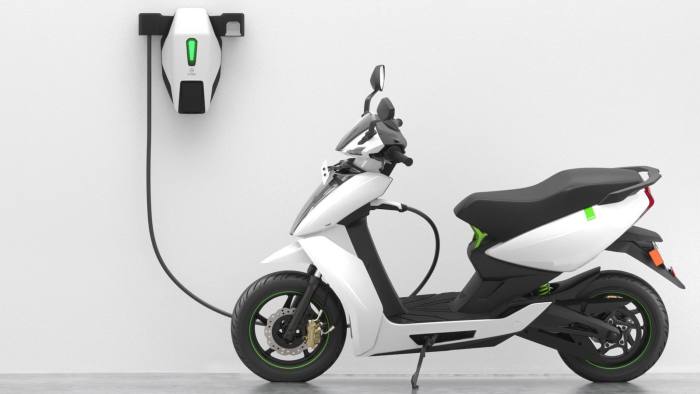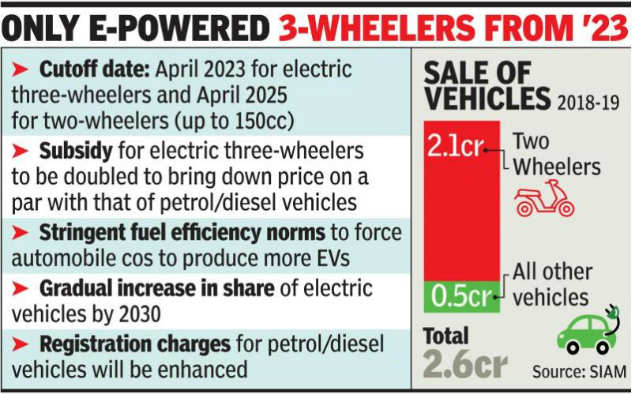NEW DELHI: Signalling a faster transition towards electric vehicles, the government is expected to mandate the sale of only electric three-wheelers from April 2023, while all new two-wheelers with engine capacity up to 150cc driving out of showrooms may have to be powered by electricity from April 2025.
The radical recommendations of a high-level government panel are aimed at reducing vehicular pollution as these two segments, with annual sales of over 2 crore units, account for more than three-quarters of the traffic on Indian roads. The move will not impact vehicles registered up to the cut-off date as they will continue to ply.
The four-six year transition window has been provided to ensure that the auto industry, which is pumping in large amounts of money to manufacture BS-VI compliant vehicles from April next year, gets enough time to recover its investment, sources told TOI.
The inter-ministerial steering committee led by Niti Aayog CEO Amitabh Kant is likely to propose similar deadlines for delivery vehicles and school and city buses, though the suggestion may not be palatable to the auto industry, which has been pitching for doles.
Government not looking to offer concessions to automakers
The committee has also pushed for doubling direct subsidy for electric three-wheelers to Rs 20,000 per kilo watt hour to make them as affordable as those that run on fossil fuel. Besides, the government is looking at prescribing stringent fuel efficiency norms for new petrol and diesel vehicles, while offering financial and other concessions for the electric segment.
The power ministry has been tasked with finalising the framework for carbon credittrading mechanism to complement the corporate average fuel efficiency (CAFE) norms, which will compel automobile manufacturers to shift to manufacturing more electric vehicles to comply with the norm. Similarly, the transport ministry is working on a roadmap for staggered transition of electric vehicles in each segment by 2030.
In September 2017, the automobile industry created an uproar when transport and highways minister Nitin Gadkari suggested that the government will push the auto sector to move to alternative fuel. Work on creating charging infrastructure has also begun.
Officials, however, said the switch to electric mode was an opportunity for the Indian auto sector to emerge as a global hub considering the large market opportunity that the country offers. In any case, the existing facilities can be used to export automobiles from the country. “Our companies can take the lead as three of the four largest two-wheeler manufacturers in the world are Indian players,” said an official. The large volumes also offer the opportunity to develop a strong component base in the country, another official added.
However, the government is not looking to offer any concessions to automakers. Instead, the sops would be reserved for battery manufacturers, where the current share of Indian players is estimated at 5% or so. With the help of benefits through the FAME scheme, battery manufacturers can capture 81% of the value creation. Sources said the thrust on electric two- and three-wheelers will result in about Rs 50,000-crore investment in battery manufacturing and storage by 2025.





